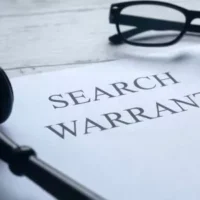What Is Probable Cause And How Can It Affect A Criminal Defense Case?

Probable cause is a requirement that law enforcement personnel are required to meet in order to issue a warrant, conduct a search, or to make an arrest. It can also be used to justify warrantless searches and arrests if there is an urgent situation. It is an important part of the Fourth Amendment, which is a part of the Bill of Rights added to protect American citizens’ privacy. It was created in order to protect people from unreasonable search and seizure, and implemented the use of warrants and probable cause to avoid the aforementioned issue.
The Fourth Amendment explicitly states that “no warrants shall issue, but upon probable cause,” but the definition of probable cause is not explained. This issue has created arguments within many criminal defense cases, because if an arrest or search is conducted without probable cause, any evidence that stems from either the unconstitutional search or arrest must be suppressed, including any confessions that are made. Due to the ambiguous nature of probable cause’s definition and its importance in correctly serving justice, the Supreme Court has tried to clarify the meaning while also recognizing its fluidity and the fact that it is very context-dependent. In Illinois v. Gates, the definition they provided was very flexible, as they described probable cause as a “practical” and “non-technical” standard, which also calls upon the “factual and practical considerations of everyday life on which reasonable and prudent men act”.
The reason probable cause is so important for criminal defense cases is because it can be used to strengthen a case, if the defendant is arrested or searched without probable cause. Like I said before, the evidence revealed via unconstitutional arrests must be suppressed, and cannot be disclosed to a jury during trial. However, there is an exception to this exclusionary rule, where if the arresting officer mistakenly and in good faith believes that a warrant has been issued despite a mistake being made by a court employee. If this situation occurs, the exclusionary rule is not applied and the evidence may become admissible in a court of law.
Probable cause is also an important issue in regard to new technology, such as smartphones and computers. This issue has also been brought before the Supreme Court in Riley v. California, in which the Supreme Court ruled that “the police may not, without a warrant, search digital information on a cell phone seized from an individual who has been arrested”. This ruling has helped to protect the privacy rights of American citizens, but it doesn’t help to clarify the definition of probable cause.
To finalize, probable cause is an important part of the criminal justice system as it provides the legal foundation for both warranted and warrantless searches and arrests, despite its confusing nature. Due to the variety of circumstances that surround criminal defense cases, it is very dependent on the context of the situation at hand. Due to these factors, probable cause can be strategically used by either the prosecution or defense, and it can have a huge impact on a case if the lack of its presence leads to the suppression of crucial evidence.




